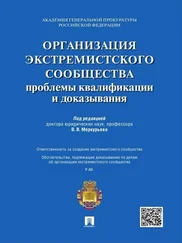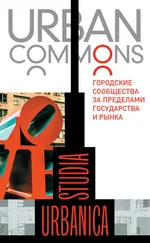Kalevi M. Korpela, «Place Identity as a Product of Environmental Self-Regulation», Journal of Environmental Psychology 9 (1989): 241–256.
Uzzell et al., «Place Identification, Social Cohesion, and Environmental Sustainability», 26–53.
Majken Bieniok, Das Konzept der idealen Metropole in Theorie und Praxis am Beispiel von Berlin (Berlin: Verlag Peter Lang, 2012).
Ostrom, Governing the Commons; Остром Э. Управляя общим: эволюция институтов коллективной деятельности. М.: ИРИСЭН; Мысль, 2010.
Vincent Ostrom, «Polycentricity-Part 1», in Michael McGinnis, ed., Polycentricity and Local Public Economies (Ann Arbor: University of Michigan Press, 1999).
Dennis R. Fox, «Psychology, Ideology, Utopia, and the Commons», American Psychologist 40 (1985): 48–58; http://www.dennisfox.net/papers/commons.html (accessed 22.01.2015).
http://www.dennisfox.net/papers/commons.html (accessed 22.01.2015).
David Harvey, Rebel Cities, From the Right to the City to the Urban Revolution, Verso, 2012.
Ibid., 70.
Ibid., 83.
Vinay Gidwani and Amita Baviskar, «Urban Commons», Economic & Political Weekly 46, № 50 (2011): 42; Anant Maringanti, «No Estoppel: Claiming Right to the City via the Commons», Economic & Political Weekly 46, № 50 (2011): 65.
Kirsten Hackenbroch, The Spatiality of Livelihoods: Negotiations of Access to Public Space in Dhaka, Bangladesh (Stuttgart: Franz Steiner Verlag, 2013), 31.
Ibid., 31–32.
David Harvey, Rebel Cities: From the Right to the City to the Urban Revolution (London: Verso Books, 2012), 73.
Elinor Ostrom, Governing the Commons: the Evolution of Institutions for Collective Action (New York: Cambridge University Press, 1990), 90–102; Остром Э . Управляя общим: эволюция институтов коллективных действий. М.: ИРИСЭН; Мысль, 2010. С. 178–180.
О переосмыслении «места», к примеру, см.: Henrike Donner and Geert De Neve, «Space, Place and Globalisation», in The Meaning of the Local: Politics of Place in Urban India, Henrike Donner and Geert De Neve, eds. (New York: UCL Press, 2006). Обеспокоенность городскими общественными процессами и повседневными практиками усилилась за счет введения в оборот понятия «городской ассамбляж», о нем см.: Colin McFarlane, Learning the City: Knowledge and Translocal Assemblage (Hoboken: John Wiley & Sons, 2011). Критика концепта представлена в: Neil Brenner, «Theses on Urbanization», Public Culture 25, № 1 (2013): 85–114.
Arturo Escobar, «Culture Sits in Places: Reflections on Globalism and Subaltern Strategies of Localization», Political Geography 20, № 2 (2001): 170.
Jonathan Shapiro Anjaria and Colin McFarlane, «Conceptualising the City in South Asia», in Urban Navigations: Politics, Space and the City in South Asia, Jonathan Shapiro Anjaria and Colin McFarlane, eds. (New Delhi: Routledge, 2011), 7.
AbdouMaliq Simone, «People as Infrastructure: Intersecting Fragments in Johannesburg», Public Culture 16, № 3 (2004): 407.
Ibid., 408.
Ibid.
Ibid., 410.
Ibid., 427.
Swati Chattopadhyay, Unlearning the City (Minneapolis: University of Minnesota Press, 2012), 248.
Simone, «People as Infrastructure», 408.
Stephen Graham and Simon Marvin, Splintering Urbanism: Networked Infrastructures, Technological Mobilities and the Urban Condition (London; New York: Routledge, 2001), 388.
Ibid., 34–35, 281–284.
Manuel Castells, «Grassrooting the Space of Flows», Urban Geography 20, № 4 (1999): 297; cited in Graham and Marvin, Splintering Urbanism, 388.
Michel de Certeau, The Practice of Everyday Life (Berkeley; Los Angeles: University of California Press, 1984), 96. Отсылаем к рус. изд.: Де Серто М . Изобретение повседневности. СПб.: Издательство Европейского университета, 2015. 330 с. Подобно АбдуМалику Симону, де Серто подчеркивает, что власти, как правило, не видят эти пространственные практики. Джеймс Скотт стремится доказать, что невидимость – это стратегия пространственных политик как таковых. Эти инфраполитики подчиняются логике «оставления минимального количества следов за собой. Заметая следы <���…> они минимизируют риски для участников процесса». Подробнее см.: James C. Scott, Domination and the Arts of Resistance: Hidden Transcripts (New Haven: Yale University Press, 1990), 200.
Loraine Kennedy, «New Forms of Governance in Hyderabad: How Urban Reforms are Redefining Actors in the City», in New Forms of Urban Governance in India: Shifts, Models, Networks and Contestations, Isabelle Suzanne Antoinette Baud and Joop De Wit, eds. (New Delhi: Sage, 2008), 257.
Loraine Kennedy, «Regional Industrial Policies Driving Peri-Urban Dynamics in Hyderabad, India», Cities 24, № 2 (2007): 100.
Sangeeta Kamat, «Neoliberalism, Urbanism and the Education Economy: Producing Hyderabad as a ‘Global City’», Discourse: Studies in the Cultural Politics of Education 32, № 2 (2011): 194–195; N. Purendra Prasad and P. Raghavendra, «Healthcare Models in the Era of Medical Neo-Liberalism», Economic & Political Weekly 47, № 43 (2012): 119; Kennedy, «New Forms of Governance in Hyderabad», 257, 267.
Kamat, «Neoliberalism, Urbanism and the Education Economy», 188.
Madhav G. Badhami, «The Urban Transport Challenge in India: Considerations, Implications and Strategies», International Development Planning Review 27, № 2 (2005): 178; Angela Jain et al., Participative Processes in the Field of Traffic and Transport (Bremen: Europäischer Hochschulverlag, 2013), 2–4.
Katharina Manderscheid, «Automobilität als raumkonstituierendes Dispositiv der Moderne», in Die Ordnung der Räume, Henning Füller and Boris Michel, eds. (Münster: Westfälisches Dampfboot, 2012), 168.
Nikhil Anand, «Disconnecting Experience: Making World-Class Roads in Mumbai», Economic and Political Weekly 41, № 31 (2006): 3422.
Читать дальше
![Коллектив авторов Urban commons. Городские сообщества за пределами государства и рынка [litres] обложка книги](/books/387248/kollektiv-avtorov-urban-commons-gorodskie-soobches-cover.webp)







![Коллектив авторов - Гражданское право. Части вторая и третья. Краткий курс [litres]](/books/404815/kollektiv-avtorov-grazhdanskoe-pravo-chasti-vtoraya-thumb.webp)
![Коллектив авторов - Мозг и сознание [Разгадка величайшей тайны человеческого мозга] [litres]](/books/406124/kollektiv-avtorov-mozg-i-soznanie-razgadka-velicha-thumb.webp)
![Коллектив авторов - Рыба и морепродукты. Закуски, супы, основные блюда и соусы [litres с оптимизированными иллюстрациями]](/books/409945/kollektiv-avtorov-ryba-i-moreprodukty-zakuski-su-thumb.webp)

